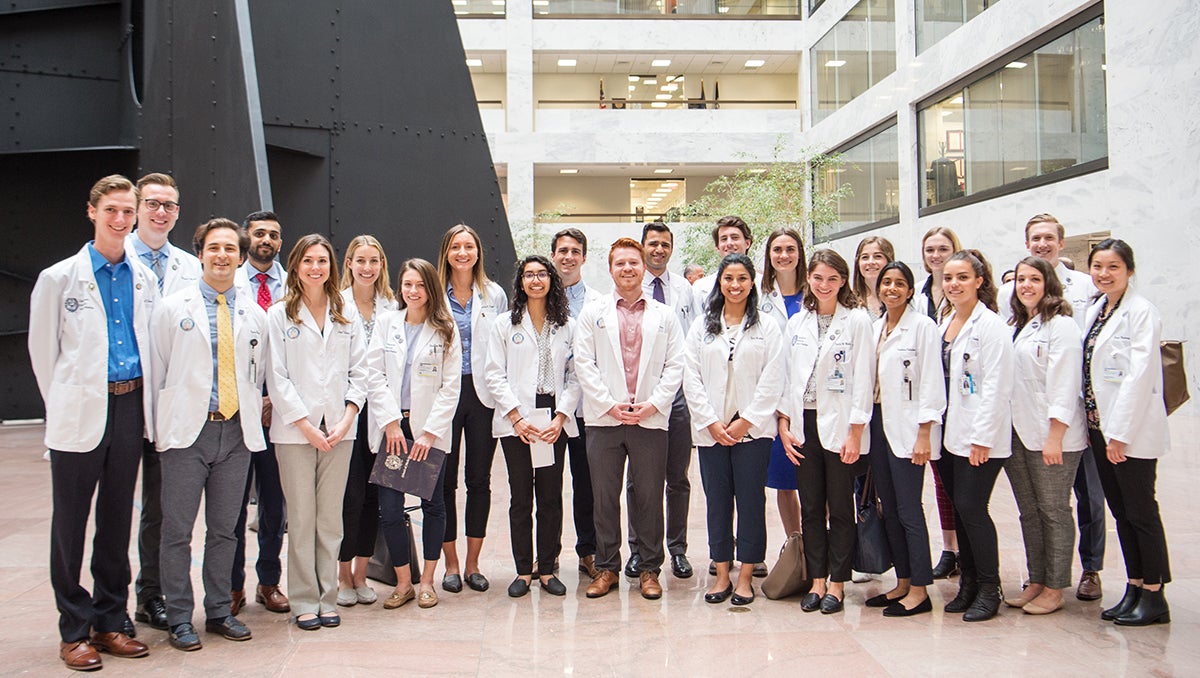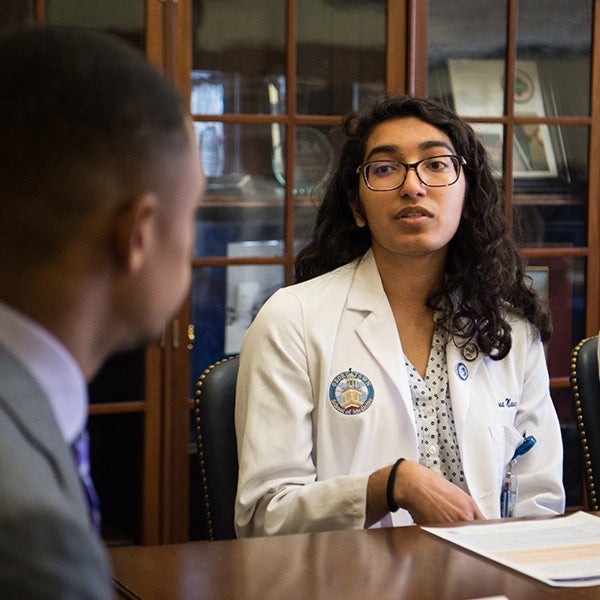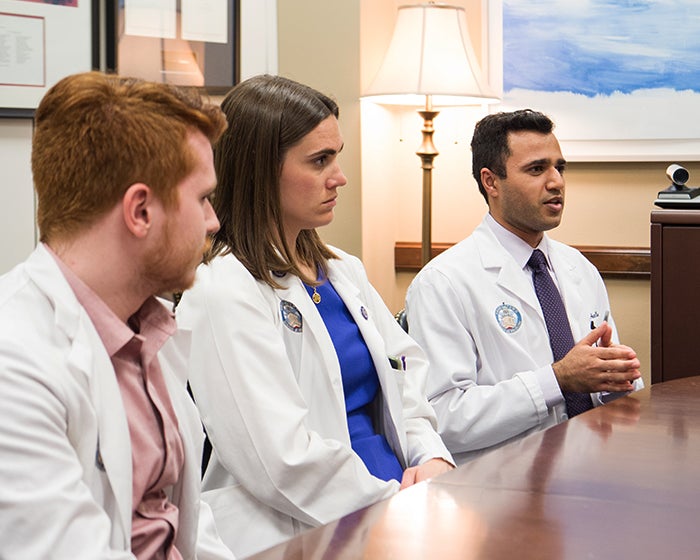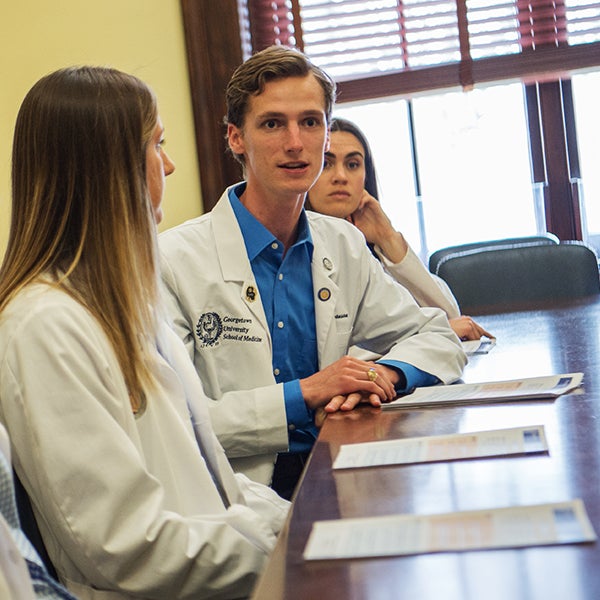Hoyas on the Hill Advocate on Behalf of Patients

Posted in GUMC Stories | Tagged advocacy, cura personalis, health justice, Health Justice Alliance, School of Medicine, service to others
(March 24, 2020) — Though the COVID-19 pandemic dominated the focus on the Hill, the purposeful groups of Health Justice Scholars from Georgetown University School of Medicine and Georgetown Law who walked the halls of congressional buildings on March 11 — just one day before such visits were canceled — were undeterred in their efforts to catch the attention of congressional office representatives.

Each year, Capitol Hill Advocacy Day, or Hill Day for short, provides teams of Georgetown medical students, often joined by law students, with opportunities to speak with congressional members in an effort to convince them to introduce, co-sponsor or support certain health-related legislation aimed at supporting marginalized and vulnerable patient populations. This year, prescription drug pricing, universal health care, lead-based paint, mental health, medical-legal partnerships, and customs and border protection were among the issues the students promoted.
This year, the COVID-19 outbreak amplified the efforts of students who were focused on the importance of health care access for all. “A lot of us came to Georgetown specifically for some integrated experience between politics and medicine,” said Amna Nawaz (M’22). “This is the pinnacle of that experience.”
Prepared for the Opportunity
Walking into each conference room, students diligently advocated for their chosen bill, while keeping ample space between each other and steadily applying hand sanitizer in accordance with measures to reduce the spread of COVID-19.

As part of their Hill Day experience, Health Justice Scholars work closely with members of the Georgetown University Health Justice Alliance, a unique medical-legal partnership between Georgetown Law and Georgetown University Medical Center. Drawing on the expertise of faculty and students at the Law Center, medical students receive guidance and strategic support as they prepare for their Hill Day visits. Working with the Health Justice Alliance, medical student teams consider and select pending bills based on their interest and potential patient impact. They conduct in-depth research and craft arguments, collaborating with the law faculty and students along the way on the policy and advocacy aspects of their presentations.
For Daniel Swanson (M’22) and his fellow students, prescription drug pricing was an obvious first choice. “We were interested in how can we tackle an issue that is not only pertinent, but also on everyone’s mind, and extremely important to our patients,” he said.
“You can find stories about this all the time, about patients who can’t financially support any medication they have been prescribed,” said Aneel Maini (M’22). “I think what could really bring [the] two [political] parties together … is the fact that this is for people’s health, and not about making money.”
Empowered to Continue Advocating

As Blaise Springfield, a health policy and insurance subject-matter expert working with the Health Justice Alliance and a team of medical students throughout the Hill Day experience, explained, “One of the biggest things we want to take [from Hill Day] is that the medical students feel empowered to take what they learned through the past school year into their careers and lead policymaking efforts as physicians in their communities.”
As Hill Day concluded, the fate of the legislation that the students were promoting remained unknown. What they knew for certain, though, was that this was only the beginning of their health care policy advocacy.
“We didn’t get the bill passed today, but we started that process of making politicians aware,” said Swanson. “I am a firm believer in you change the world through the smallest interactions, through a simple handshake, simple conversation, and that goes on to have gigantic effects.”
Tyisha Henderson
GUMC Communications
